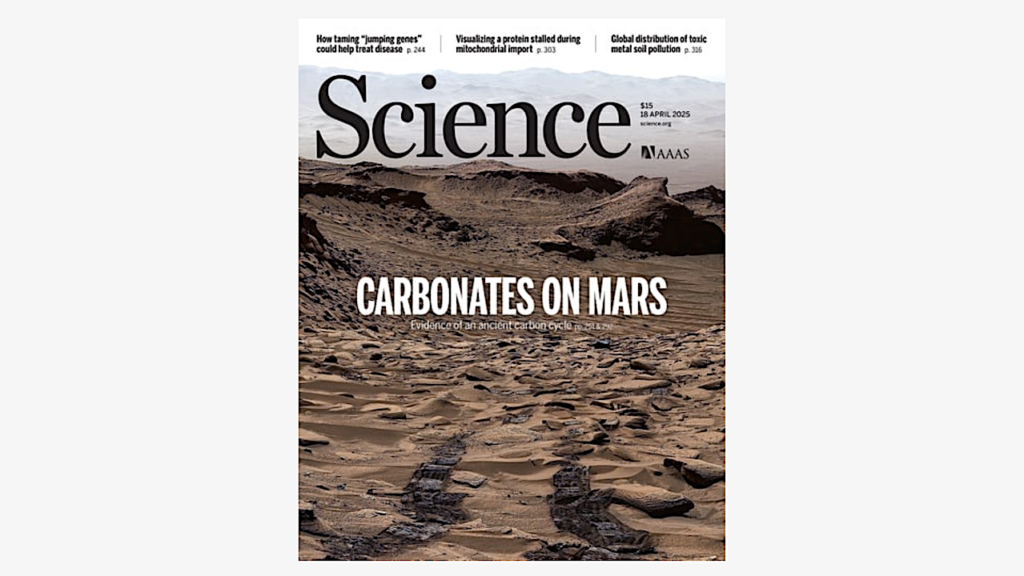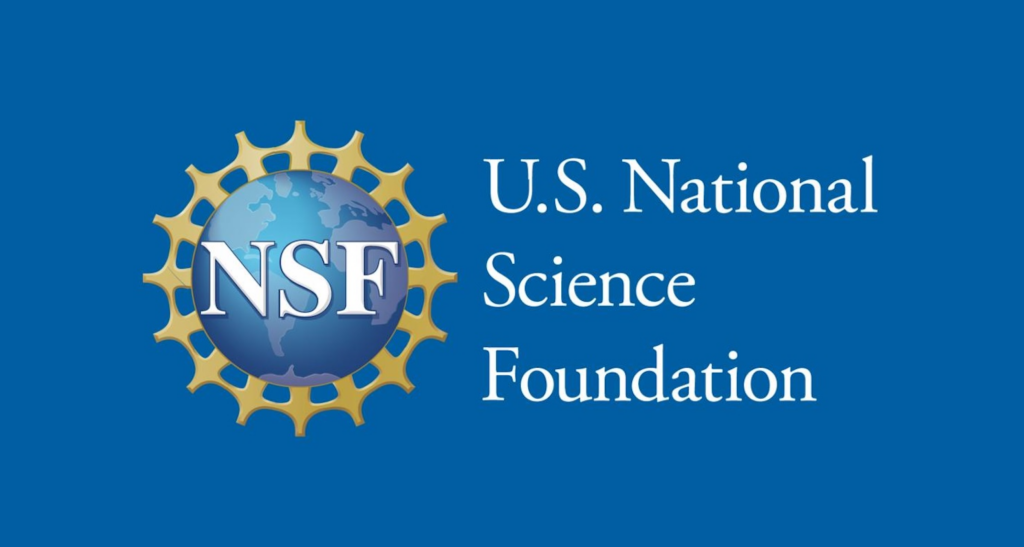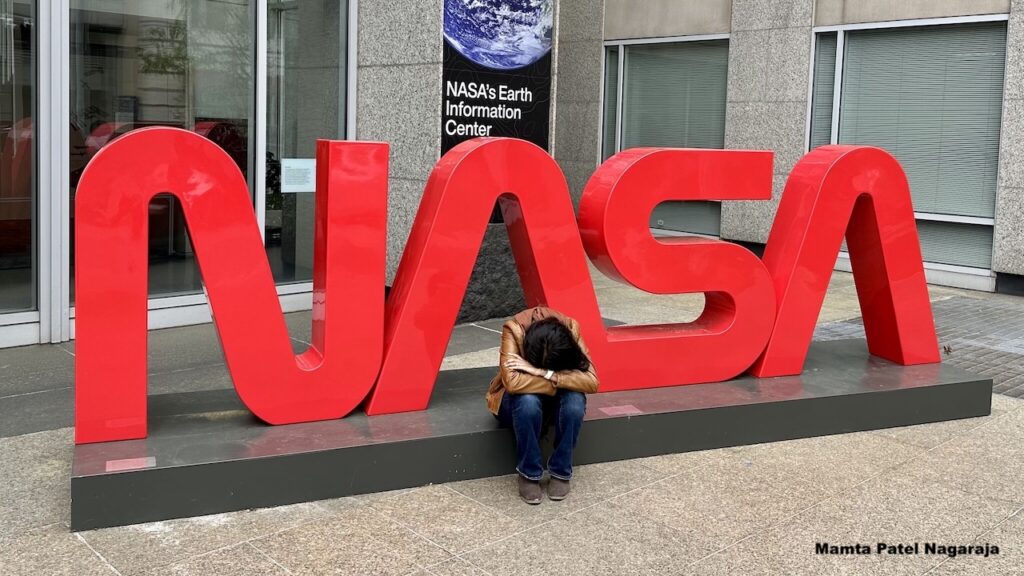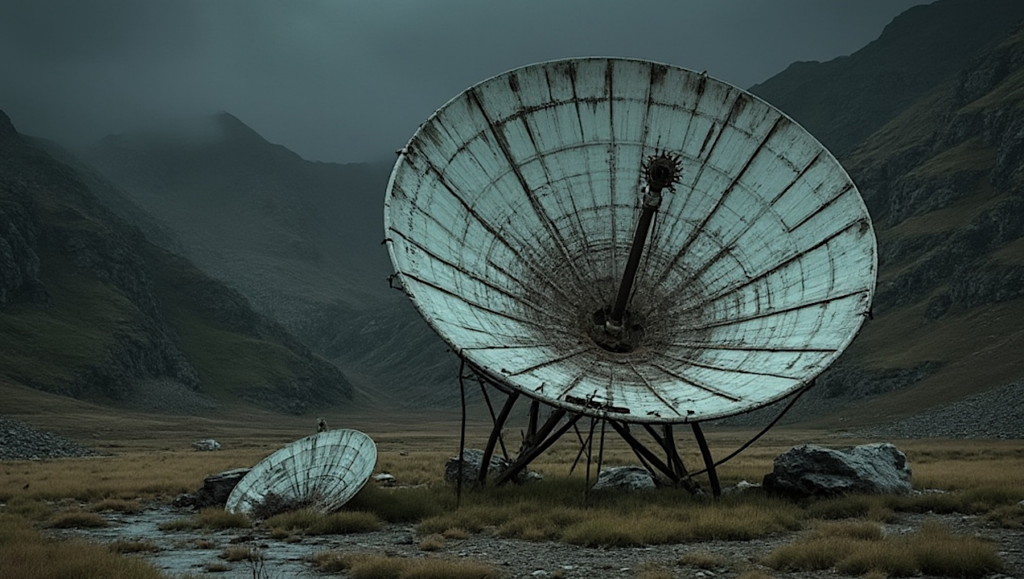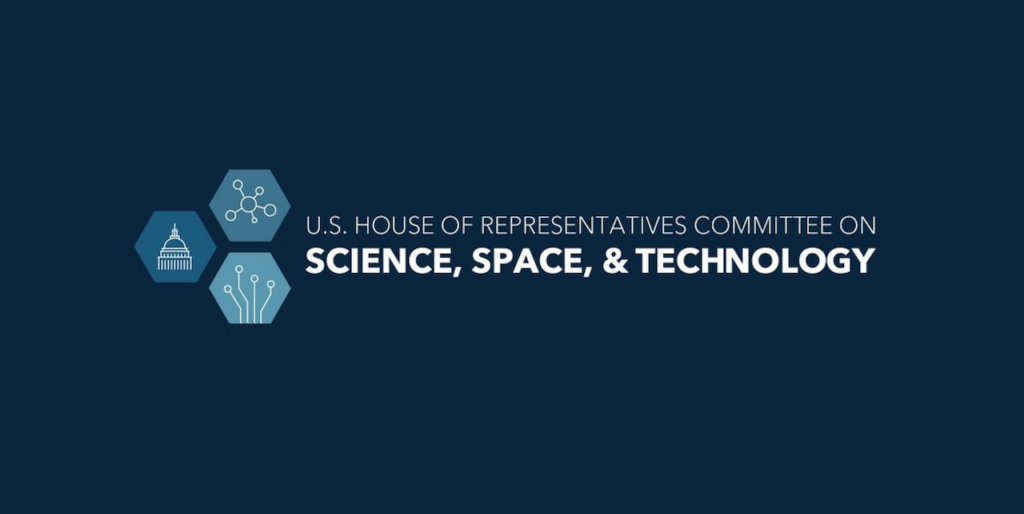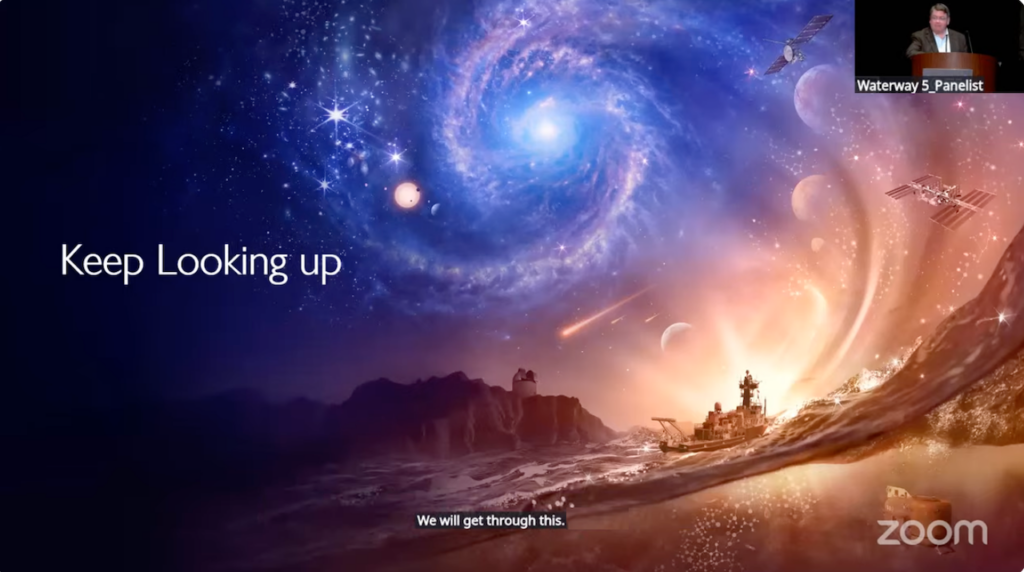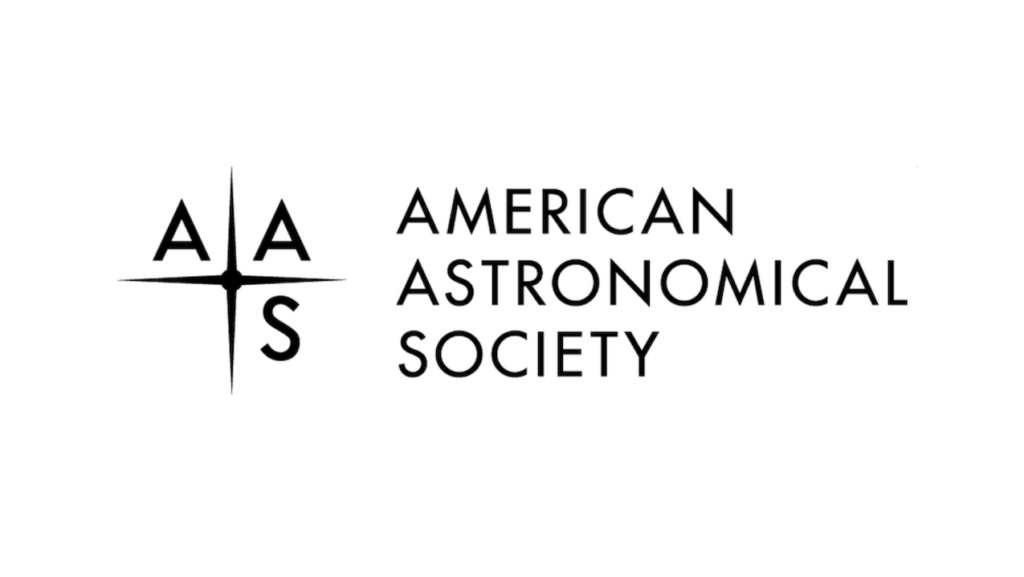Keith’s 18 April later update: NASA PAO finally started to post updates 24-36 hours after the rest of the world was reading about these discoveries everywhere except at NASA. Keith’s 17 April note: Two big Astrobiology/Space Science stories came out today based on NASA missions: JWST observations reveal possible exoplanet biosignatures (all over the news globally). Curiosity rover makes the cover of Science Magazine for carbonate discoveries on Mars. No mention of either is made at NASA.gov, astrobiology.nasa.gov, @NASA, @NASAAstroBio, or @NASASpaceSci. Everyone is worried about possible science cuts at NASA yet Public Affairs is utterly incapable of putting its own good news out for policy makers to see and consider. Baffling. Keith’s 18 April update: someone added a link about the Mars story to the NASA.gov page – but NASA Science Mission Directorate has not said anything about JWST biosignatures or Mars carbonates.
(more…)Keith’s note: Science agency funding is under heavy scrutiny by DOGE, OMB, OPM and other Administration offices – whether it is for supposed DEI sins, perceived waste, or other things that do not resonate with the White House’s plans. NSF is already having a tough time. NASA is certain to be under similar stresses very, very soon. And of course there are long-standing synergies between NSF – and NASA – and NOAA etc. in terms of interagency research collaboration.
- According to “Trump team freezes new NSF awards — and could soon axe hundreds of grants” at Nature: “All new research grants have been frozen at the US National Science Foundation (NSF) — an action apparently ordered by the Department of Government Efficiency (DOGE), an initiative by billionaire entrepreneur Elon Musk to cut spending and workers across the US government. DOGE is also now reviewing a list of active research grants assessed in February by the NSF for terms associated with diversity, equity and inclusion (DEI), and considering more than 200 of them for termination, NSF staff members have told Nature.”
- According to “Ranking Member Lofgren Urges NSF to Ignore Inflammatory Cruz Report, Releases Democratic Staff Report in Rebuttal”: “Today, Ranking Member Zoe Lofgren (CA-18) sent a letter to National Science Foundation Director Sethuraman Panchanathan urging the Director to disregard Senator Ted Cruz’s inflammatory report in any NSF grantmaking decisions. In addition to the letter, the Ranking Member also transmitted a Minority Staff Report that details how Senator Cruz’s report is deeply flawed, and his demand for grant cancellations is therefore misinformed.”
- Meanwhile NASA has already been sending form letters like this out to grantees: “TO: NASA Grant Recipient FROM: NASA Shared Service Center (NSSC), Grants Activities Branch SUBJECT: “Hold” on grants in response to the Executive Order, Executive Order 14222, “Department of Government Efficiency” Cost Efficiency Initiative On February 26, 2025, the President of the United States of America signed an Executive Order titled, “Department of Government Efficiency” Cost Efficiency Initiative.” The purpose of this letter is to notify you that the following NASA grants are placed on “HOLD” until further notice to allow NASA the opportunity to review and determine the next steps. No further activities shall be performed as of today, March XX, 2025. Drawdowns in the U.S. Department of Health and Human Services Program Support Center, Payment Management System shall be made only for the costs incurred as of today. NASA appreciates your patience and support. With regards, … “
Keith’s note: Wow. The Curiosity rover has been driving around Mars since 2012. Yet it still does quality field geology work. Indeed, Science Magazine saw fit to put it on its cover – a distinction where major scientific discoveries often appear. See: NASA’s Curiosity Rover May Have Solved Mars’ Missing Carbonate Mystery.
(more…)Keith’s note: I was just on Bloomberg Radio/YouTube talking about the recent (possible) biosignature news of exoplanet K2-18 b and Astrobiology, while back on Earth, NASA’s budget cuts loom and how soon-to-be NASA-administrator Jared Isaacman is going to have to figure this all out. [Audio]
(more…)Keith’s note: Some interesting news from Cambridge University. Astronomers using the James Webb Space Telescope have detected “a tentative hint of dimethyl sulfide (DMS)“. A biosignature, simply defined, is a substance that is usually produced by life. It can often also have non-life sources. But usually when it is detected in certain circumstances it is a blinking light for something interesting. Follow-up research will be required – by multiple teams. As Carl Sagan is often quoted as saying “Extraordinary claims require extraordinary evidence”. NASA helped fund this research – research that is at the core of Astrobiology. Let’s see if they talk about it. Or not. To be clear: no one has discovered extraterrestrial life. At best they have noticed the hint – of a hint – of something that is worth looking into.
- According to “New Constraints On DMS and DMDS In The Atmosphere Of K2-18 b From JWST MIRI“: “Recent JWST transmission spectroscopy of the candidate hycean world K2-18 b in the near-infrared led to the first detections of carbon-bearing molecules CH4 and CO2 in its atmosphere, with a composition consistent with predictions for hycean conditions. The observations also provided a tentative hint of dimethyl sulfide (DMS), a possible biosignature gas, but the inference was of low statistical significance. … The results also highlight the need for additional experimental and theoretical work to determine accurate cross sections of important biosignature gases and identify potential abiotic sources. We discuss the implications of the present findings for the possibility of biological activity on K2-18 b.“
- According to “Strongest Hints Yet Of Biological Activity Outside The Solar System” from Cambridge University: “Using data from the James Webb Space Telescope (JWST), the astronomers, led by the University of Cambridge, have detected the chemical fingerprints of dimethyl sulfide (DMS) and/or dimethyl disulfide (DMDS), in the atmosphere of the exoplanet K2-18b, which orbits its star in the habitable zone. On Earth, DMS and DMDS are only produced by life, primarily microbial life such as marine phytoplankton. While an unknown chemical process may be the source of these molecules in K2-18b’s atmosphere, the results are the strongest evidence yet that life may exist on a planet outside our solar system.”
Keith’s note: According to this press release issued on Monday by Rep. Judy Chu CA-28, whose district includes JPL and Caltech: “Today, President Trump’s Office of Management and Budget (OMB) reportedly sent a preliminary budget plan to NASA that proposes a 50% cut to NASA’s Science Mission Directorate (SMD) and to eliminate funding for the Mars Sample Return (MRS) mission led by Jet Propulsion Laboratory (JPL), which is owned by NASA and administered by the California Institute of Technology (Caltech).” Full text below.
(more…)Keith’s note: NSF has ended a long list of Internal advisory committees but is keeping FACA committees: According to an internal NSF memo: “What is the status of NSF’s advisory committees?”: “Consistent with the President’s February 19, 2025, executive order, Commencing the Reduction of the Federal Bureaucracy, the following federal advisory committees are disestablished as of April 15, 2025:” (long list below)
(more…)Keith’s note: (This stream of consciousness bubbled out of my head on a Sunday night) One of the potential victims of the upcoming NASA budget cuts is the Mars Sample Return. Its had its problems with cost and schedule and complexity. But what if you did not need to return the samples from Mars?
(more…)Keith’s note: the following was posted on LinkedIn by Mamta Patel Nagaraja, who was NASA Associate Chief Scientist for Exploration and Applied Research – until that office was closed last month and everyone was laid off. Her words remind me of the time when I decided to leave NASA. But the image – as they say – speaks a thousand words. It stopped me in my tracks. I asked if I could post this and she said “Yes, of course”. FWIW Speaking from experience you can leave NASA – but it never leaves you.
- “I said goodbye to the OG yesterday. I’d love to tell you that I held my head high, but I have never painted a rosy picture online that wasn’t actually rosy. Yesterday was sad. Angering. Relieving, dare I say- after all, I left a toxic atmosphere. Emotionally perplexing indeed. But overall, sad. I always imagined a happy exit from NASA, either retiring or choosing to leave for bigger opportunities. Alas, as I promised you, I’ve dreamed again and you’ve helped. In countless ways. I’m thinking about creating my own company, I’ve got a few startups who want to chat, a prospect where I could help prevent another pandemic, and maybe even a chance to inspire young kids to explore the unknown. And I’ve only been a free agent for one day! Things are looking up – I’ll update you soon on which path I travel next. And if I haven’t responded to your message yet, I will. I just needed to get through my last 30 days at NASA. To new beginnings!“
Keith’s note: NASA has led space science and “Made America Great In Space” for more than half a century. Let’s not let that science leadership fade. Let’s expand it further. NASA has led the way by:
- touching the sun
- visiting every planet in our solar system
- sending humans to walk on another world
- doing the first offworld search for life
- moving an asteroid
- finding water on the Moon and Mars
- discovering oceans inside icy moons
- sailing across interstellar space
- peering back to the dawn of the universe
- developing a global brand that all nations aspire to
Keith’s note: people have been talking about cuts to NASA – specifically science and most specifically Earth/Climate science for a while. It stems back too the overt anti-science statements and plans made in the Project 2025 effort. Now, Ars Technical has pulled that all together with the actual budget passback document as a guide. So there it is folks. Now we have numbers. Even if Congress and the White House pull some of this back, NASA’s science portfolio will be gutted and the impact will last for a very long time. And this affects more than just the science crowd. Fewer science missions means fewer launches and that directly affects the KSC civil servant and contractor workforce. The same goes for fewer payloads since the NASA centers and allied research institutions that build and operate payloads will be hit hard too. As science starts to dry up, the need for future commercial space stations will start to fade since the science they are supposed to be doing will be gone. Add in congressional intent to keep ISS operational until 2030, and the commercial space station thing will need to find all of its money elsewhere. Meanwhile, the Big Aerospace firms are uninterested in any of the personnel things – unless it affects their bottom line. Even then they remain mostly silent. Cuts like this assure that when it comes to space science NASA will NOT “make space great again”. So let’s “Embrace The Challenge”, as Janet Petro still says.
(more…)Keith’s note: If they can delete climate and Earth Science data at NOAA they can do the same thing to science data at NASA. According to this release from House Science Democrats: Ranking Members Condemn Trump Administration Plan to Shut Down NOAA Research Websites and Their Data: “Last night, reporting revealed that the Trump administration plans to shut down websites associated with the National Oceanic and Atmospheric Administration’s (NOAA) research division. President Trump and Commerce Secretary Lutnick plan to cancel the contracts of webservers that support these websites. If the websites are eliminated, the climate and weather data hosted on these sites would also be lost.” Update: NOAA research websites slated to go dark get a reprieve
(more…)Keith’s note: This hearing starts Tuesday morning at 10:00 am EDT House Space & Aeronautics Subcommittee Hearing – Leveraging Commercial Innovation for Lunar Exploration: A Review of NASA’s CLPS Initiative and will be webcast live.
(more…)Keith’s note: Space Science Week 2025 – March 31-April 4, 2025 “is the joint meeting of the Space Studies Board of the U.S. National Academies discipline committees in collaboration with the Aeronautics and Space Engineering Board and Board on Physics and Astronomy.” The 1 April plenary webcast is open to anyone. According to the agenda Janet Petro is speaking at 9:20 am EDT.
(more…)Keith’s note: According to “Update to NASA Science Advisory Committees”: “On February 19, 2025, the President issued Executive Order 14217, Commencing the Reduction of the Federal Bureaucracy, which sets forth the Administration’s policy of reducing the size of the Federal government in order to minimize waste and abuse, reduce inflation and promote American freedom and innovation. This Executive Order directed the termination of several Federal advisory committees across the government and ordered the identification of additional unnecessary Federal advisory committees for termination.
(more…)Keith’s note: Heard at NASA HQ presentation at LPSC2025 tonight: “Keep looking up. We will get through this”.
(more…)Keith’s note: This American Astronomical Society (AAS) call to action should not be a surprise to anyone. Project 2025 made mention of it, actions already taken against NOAA, NSF, NASA, EPA, CDC, NIH show a complete disregard for science. And DOGE has supercharged things. It is only going to get worse with RIFs and wholesale budget slashing. “AAS Alarmed by Rumored Deep Cuts to NASA and National Science Foundation“:
(more…)Keith’s note: Sadly the Intuitive Machines IM-2 Athena lander is on its side on the lunar surface some 250 meters from its planned landing site. Its batteries are drained and the mission is more or less at an end. Sit illa in pace. Ad lunam cum scientia.
(more…)Keith’s note: I was just on Deutsche Welle TV talking about the IM-2 landing [audio]. The Intuitive Machines Athena Lander is on the Moon. They are shutting down things that are not needed and safing the spacecraft. Power is being generated from solar panels and surface ops have begun. Mission control is waiting for some images and other data so as to see how the vehicle is oriented on the lunar surface. Things were a little confusing to those of us looking over the team’s shoulder as the landing occurred. They apparently had multi-path issues i.e. radio waves taking multiple paths bouncing off of mountains and craters and possibly confusing things a bit. This was expected in places such as the lunar South Pole. I was also on Bloomberg Radio during the landing. I’ll be back on Bloomberg radio and television tonight for the SpaceX Starship 8 launch.
(more…)



